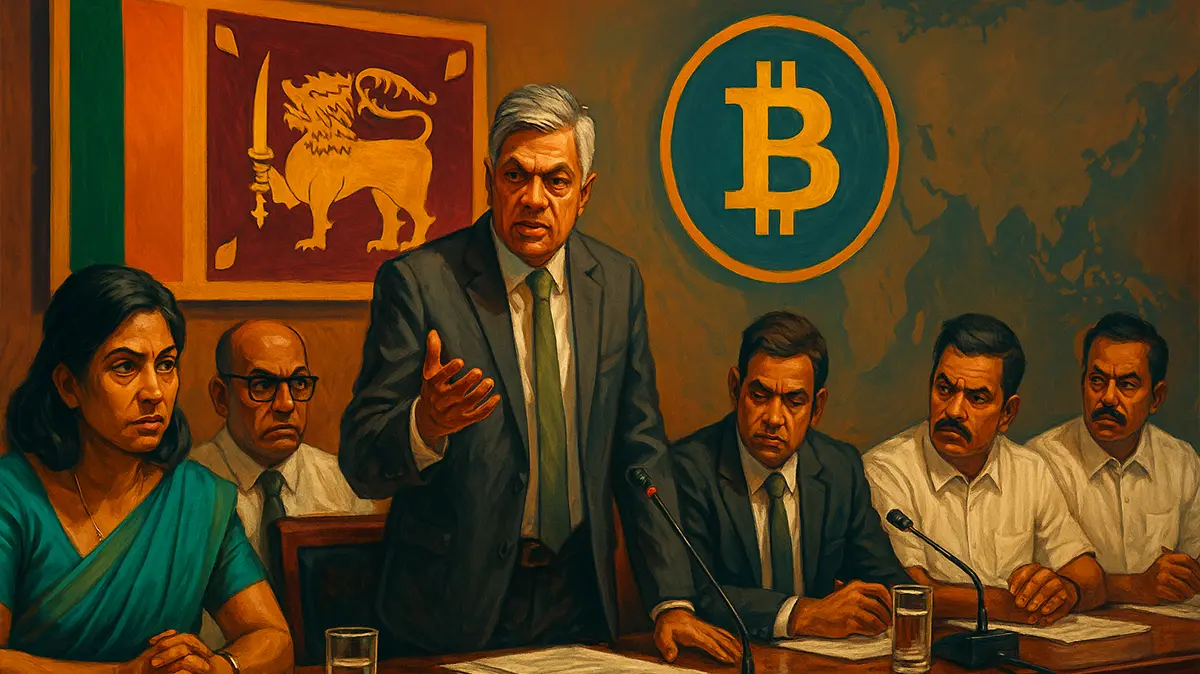The rise of cryptocurrency in Sri Lanka is bringing about significant changes in regulatory policies aimed at ensuring the safety and legitimacy of this burgeoning market. Peer-to-peer trading platforms have gained immense popularity, prompting the Central Bank of Sri Lanka (CBSL) to draft new regulations for cryptocurrency providers.
Addressing Internal and External Pressures
In recent times, the country has faced growing internal calls for stricter oversight of its cryptocurrency landscape. The CBSL governor has highlighted a lack of understanding regarding who is engaging in crypto trading and the risks associated with it. This situation underscores the dangers of unregulated markets, where activities such as money laundering and fraud can easily take hold. Firms have voiced their frustrations as financial institutions often block crypto-related transactions due to unclear policies.
Moreover, the new proposed registration rule aligns with international regulations aimed at combatting the financing of terrorism and money laundering. The CBSL, in collaboration with the Ministry of Digital Economy, aims to enact this legislation ahead of a critical evaluation by the Financial Action Task Force (FATF), which could significantly affect investor confidence and international partnerships.
Impact on Consumers and Businesses
The introduction of a registration requirement for cryptocurrency companies is poised to formalize the sector and enhance transparency. Currently, there are no licenses or recognized platforms in operation; cryptocurrencies are neither outlawed nor officially endorsed as legal tender by the CBSL. The forthcoming policy is intended to maintain a register of all active operators, both local and international, serving Sri Lankan users.
This initiative is expected to improve consumer confidence by identifying trustworthy providers and clarifying consumer options in cases of fraud or loss. Banks will also benefit from clearer guidelines regarding customer eligibility, potentially fostering a healthier financial ecosystem.
Balancing Regulation with Innovation
While many in the fintech sector recognize the necessity of regulation, there are concerns that excessive bureaucracy could hinder technological innovation. Companies like Asia Asset Finance are advocating for policies that allow room for growth while ensuring adequate oversight. Observers note that Sri Lanka risks falling behind countries like India and Singapore, which have established clear frameworks for their crypto and fintech industries.
Risks of an Unregulated Market
The rapid growth of cryptocurrency users in Sri Lanka has raised alarm bells. Since the onset of the recent economic crisis, the number of active users reportedly surged over 700%, reaching approximately 320,000. However, alongside this expansion, there has been a rise in fraudulent schemes, leaving consumers often unaware of the risks they face due to a lack of oversight.
Experts argue that the introduction of a registration framework could mitigate risks without stifling innovation. A well-crafted regulatory system would need to be stringent enough to deter misuse while fostering an environment conducive to technological advances.
Future of Sri Lanka’s Cryptocurrency Market
In adopting mandatory registrations for crypto firms, Sri Lanka aims to strike a balance between oversight and innovation. The CBSL is pursuing a model that allows for necessary regulatory checks without unnecessarily hampering growth. The current transition indicates an evolving approach; where past discourse primarily focused on risks, the present sentiment reflects a more constructive and pragmatic outlook.
If the government successfully establishes a regulatory framework that meets both national and international standards, it could position Sri Lanka favorably in the Asian cryptocurrency landscape. This would not only symbolize a maturing market but also pave the way for greater stability and investor confidence in the region.


